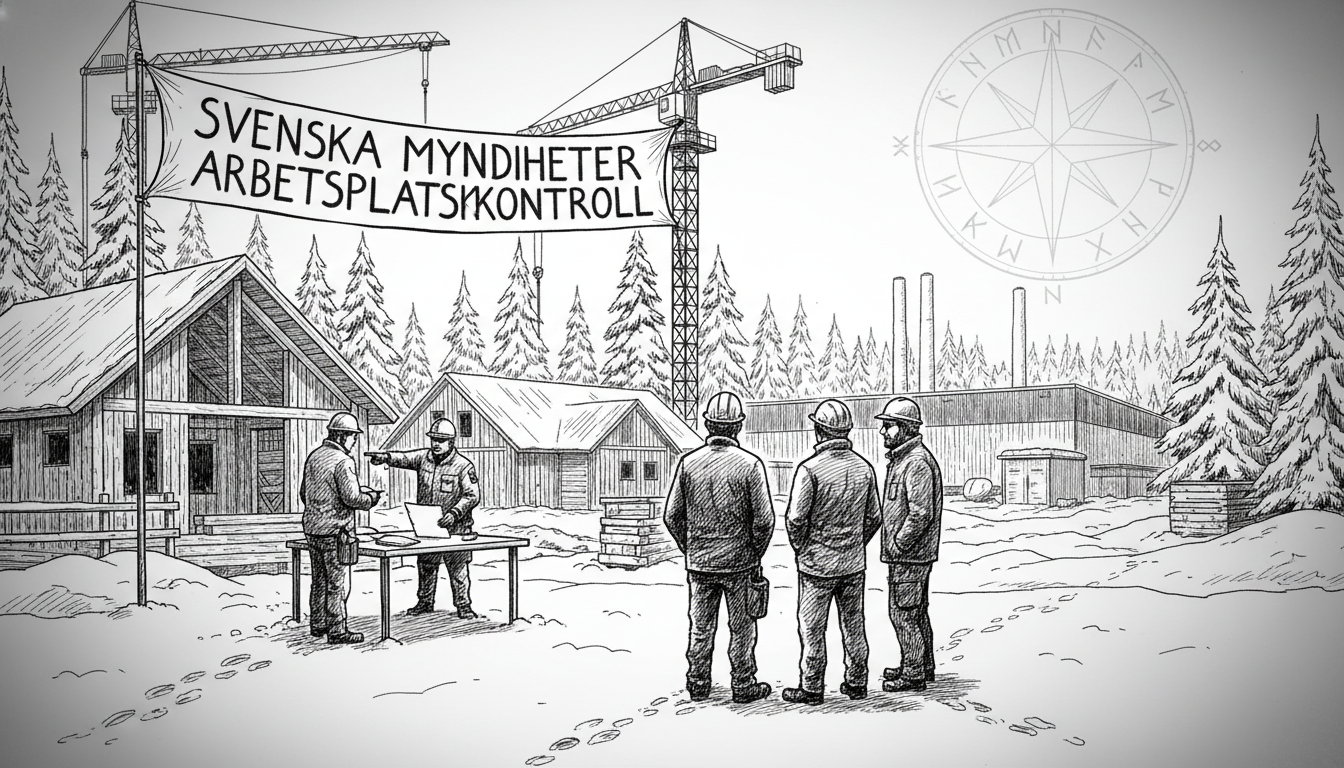Swedish police conducted extensive workplace inspections in Boden this week. Authorities targeted multiple construction companies operating in the Stegra area. The operation involved collaboration between police, the Swedish Work Environment Authority, and the Swedish Tax Agency.
Officials carried out over one hundred immigration status checks during the inspections. They discovered nineteen individuals lacked proper authorization to work and reside in Sweden. These individuals now face potential deportation proceedings.
Joakim Lundgren of the Northern Police Region confirmed the findings. He stated authorities will work to enforce removal decisions for those violating immigration laws. The operation reflects Sweden's intensified focus on illegal employment practices.
This crackdown comes amid growing political pressure to address unauthorized immigration. Sweden has seen increased debate about workplace enforcement following recent parliamentary discussions. The construction industry remains a frequent target for such inspections due to its reliance on migrant labor.
Similar operations have occurred across Sweden in recent months. Authorities appear to be taking a harder line on immigration violations. The Boden operation represents one of the larger coordinated efforts in northern Sweden this year.
What does this mean for foreign workers in Sweden? Those without proper documentation face immediate removal. Employers hiring unauthorized workers risk substantial fines and potential criminal charges. The Swedish migration system requires non-EU citizens to obtain work permits before employment.
Why focus on construction sites? The industry has historically struggled with informal labor arrangements. Seasonal demand and project-based work create opportunities for unauthorized employment. Authorities believe targeting this sector can significantly reduce illegal immigration incentives.
The political context matters here. Sweden's government has promised stricter immigration enforcement. Operations like this demonstrate their commitment to that agenda. Critics argue such approaches criminalize vulnerable workers while supporters say they protect labor standards.
What happens next for those identified? They will receive formal removal decisions and have limited appeal options. Many will likely be barred from reentering Sweden for extended periods. The employers face separate investigations that could result in significant penalties.
This operation shows Sweden's evolving approach to immigration control. Workplace raids have become more common under the current administration. The strategy appears focused on deterring both unauthorized workers and their employers through visible enforcement actions.
